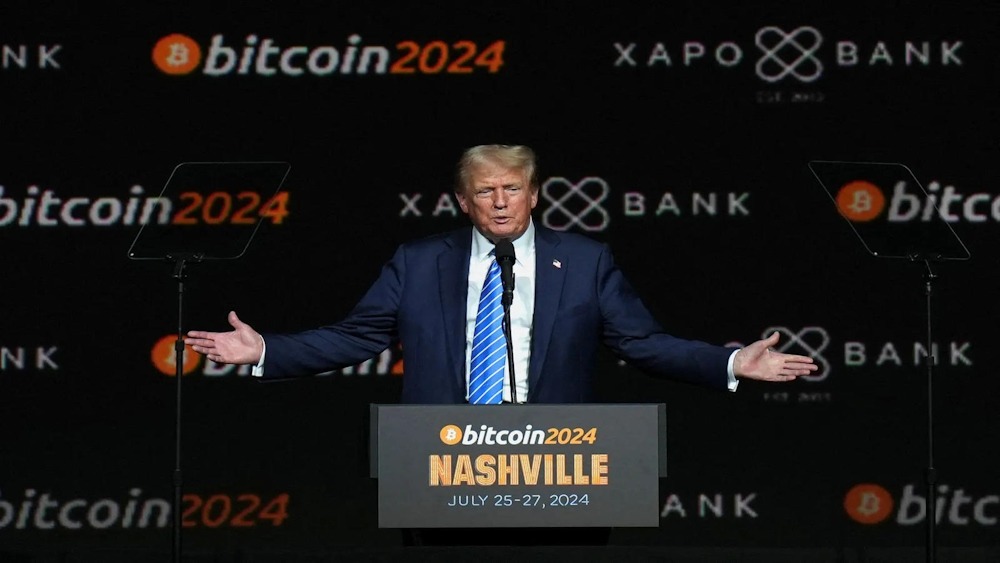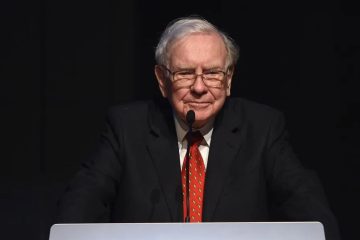You’re not correct about the “Trump trade.”

The notion of the ‘Trump trade’ may not align with popular perception. Several elements have been promoted as a strategic investment linked to the prospect of Donald Trump securing electoral victory. Purchase The Trump Media and Technology Group (DJT) operates his preferred social media platform.Acquire bitcoin, gold, and the US dollar. Divest from Treasurys and the Mexican peso.Invest in healthcare and correctional facility equities; divest from renewable energy stocks. Invest in European defense equitiesInvest in banks, with a particular focus on regional institutions.Acquire American equities while divesting from international markets.
The history associated with this select group should prompt investors to exercise caution prior to committing their resources. Certain strategies have evidently yielded results, yet their underlying rationale remains dubious. Some individuals engaged in work, albeit partially motivated by misguided incentives. Some encountered significant failures. The preceding month has provided an ideal opportunity for evaluation. In the newly legalized political betting markets, Trump and Democratic nominee Kamala Harris were closely matched in early October, but he soon began to gain a significant lead. The trades associated with Trump ought to have performed favorably.
The most evident transaction is DJT, and it has proven to be highly effective. The price experienced fluctuations that closely mirrored the betting odds, more than tripling by Tuesday, only to decline as his odds deteriorated in recent days. The uncertainty surrounding DJT’s potential victory raises significant questions about the implications of such an outcome. The firm possesses substantial liquidity; however, its operational entity, known as the Truth Social network, remains largely non-existent. In the second quarter, sales amounted to $836,900—indeed, below the $1 million mark—reflecting a decline of nearly one-third compared to the previous year. Concurrently, operating losses surged fivefold, reaching $18.7 million.
The narrative must unfold with Trump emerging victorious, championing Truth Social, leading to an influx of users and capital. However, the rationale behind its market valuation of $6.1 billion, exceeding 3,000 times its annual sales, remains a matter of conjecture. The other notable trade under Trump has been in the realm of private prisons. Geo Group and CoreCivic have experienced an increase, followed by a decline since Tuesday, in line with Trump’s betting odds. In contrast to DJT, there exists a rational framework for capitalizing on a Trump administration that implements widespread deportations.
None of the other trades associated with Trump has aligned as seamlessly with the betting odds as DJT, and all remain dubious. Commence with the successful strategies implemented since October 4. The dollar has strengthened. Bond yields have risen. Gold has experienced an upward movement. However, can we truly attribute the increase to speculation regarding a Trump administration? Bond yields and the dollar can be understood independently of electoral dynamics, as both tend to increase in tandem with a robust economy—and recent data indicates that the U.S. economy has demonstrated unexpected strength. Gold has experienced significant gains recently, driven by apprehensions regarding global tensions and a shift away from the dollar as the predominant reserve currency. The dynamics of the gold market in relation to political figures are complex. Notably, during September, the price of gold experienced a more significant increase as Trump’s odds declined, compared to the period when his chances were evenly split at 50-50.
The correlation between Mexico’s peso and Trump’s electoral prospects has intensified, a development that is understandable in light of his trade-related threats. However, its decline can be traced back to the outgoing president’s overhaul of the judiciary, a move that has raised concerns among investors. It is plausible that a portion of the peso’s depreciation can be attributed to the Trump trade; however, quantifying the exact impact amidst the prevailing dollar strength and concerns surrounding the justice system remains a complex challenge.
Bitcoin has experienced an uptick, aligning with Trump’s commitment to establish a bitcoin “strategic reserve” and position the U.S. as the “crypto capital of the planet.” Should he emerge victorious, Bitcoin is likely to experience a more favorable regulatory environment. In September, bitcoin experienced a notable increase, paralleling the rise in Harris’s odds, a trend that has not been observed since October 4. The daily fluctuations in bitcoin have not shown a strong correlation with the changes in Trump’s betting odds, nor with the DJT stock price, as they have moved in tandem on just over half of the days since October 4. The overarching trend aligns with a Trump trade; however, the daily fluctuations of bitcoin are influenced more by sentiment than by economic or political factors.
An examination of the stock market reveals that many speculative trades associated with Trump have not yielded significant results, despite an increase in his odds from a mere 50-50. Healthcare stocks have declined approximately 3%, contrary to assertions made regarding their performance linked to his aversion to Obamacare. Solar stocks have experienced a decline that is notably less severe than that of the oil-centric energy sector. However, with both sectors down by nearly 6%, the difference is marginal and largely inconsequential.
The European defense landscape was anticipated to undergo significant transformation as a result of Trump’s isolationist tendencies, compelling nations to increase their own military expenditures and diminish their dependence on American weaponry. European defense stocks, on average, are currently experiencing a decline, contrasting with the upward trend observed in September when Harris’s prospects were looking more favorable. The prospect of tariffs proposed by Trump has emerged as a significant concern among economists, with consensus among forecasters indicating that such measures would likely dampen economic growth and exacerbate inflationary pressures. However, in the stock market, the impact of the tariff threat is not readily apparent in pricing dynamics. The share prices of certain retailers heavily reliant on imports, like RH and Target, have declined, yet those of firms with substantial domestic production, such as Arhaus, which should theoretically benefit, have also experienced a downturn.
Banks appear to provide greater transparency. Major financial institutions outperformed the S&P, while regional banks surpassed even those gains, buoyed by the Trump-era hypothesis of reduced regulatory constraints. However, the most conspicuous banking maneuver associated with Trump is Flagstar Financial, the New York institution rescued by Steven Mnuchin, who served as Trump’s Treasury secretary. The company’s shares have experienced a significant decline, contrasting with the broader sector’s recent recovery. The recent rally in banking stocks may be more indicative of a rapidly expanding economy rather than a mere reflection of the Trump administration’s policies.
Ultimately, we encounter the narrative of prioritizing domestic interests: procure American-made goods while offloading all others. This approach has yielded results, though not entirely in line with the expectations of those trading on Trump’s influence. Since October 4, the S&P 500 has experienced a decline; however, the strategy proved effective as global equities suffered even greater losses when measured in dollar terms. Nevertheless, the trade proved effective during September, as Harris’s odds improved alongside a general uptick in global markets, although the S&P experienced a significantly greater increase. It is likely that certain aspects of Trump’s influence are present in these trades, albeit overshadowed by other prevailing factors. However, it is equally reasonable to suggest that markets may not serve as effective mechanisms for wagering on political outcomes. The efficacy of the new betting markets in accurately reflecting his prospects compared to the polls remains uncertain, as the latter continue to yield inconclusive results.
Moreover, Trump’s track record of fulfilling his promises is inconsistent. A significant number of his policies would require a comprehensive overhaul in Congress for implementation and would likely face legal challenges, akin to the issues surrounding Harris’s proposed measures. Investors face considerable challenges when attempting to navigate the political landscape. The most straightforward approach, if necessary, lies within the betting markets rather than the stock market.








